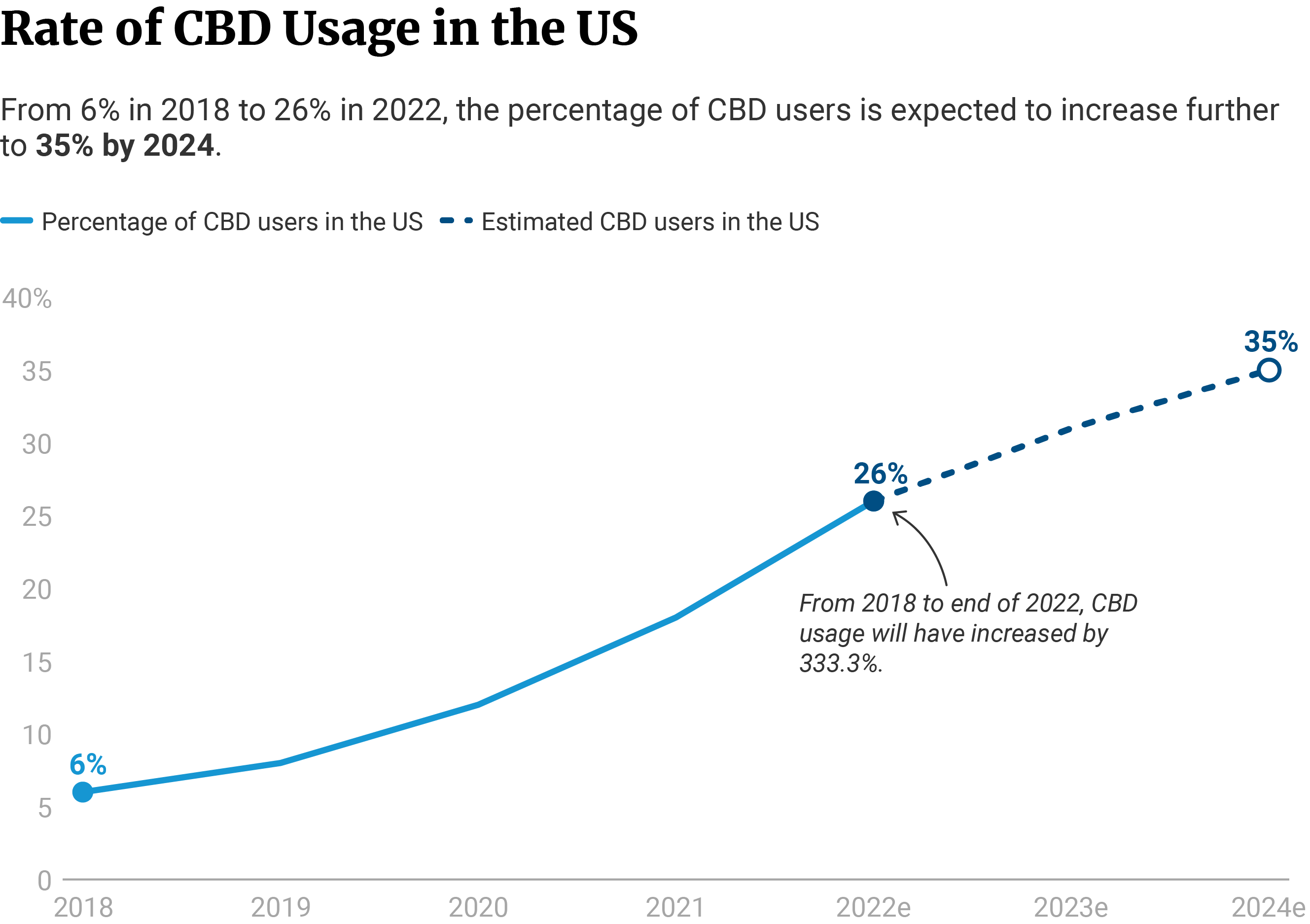Cannabidiol (CBD) is frequently discussed in the media. Recent days, you may found the chaos of the industry. However, the sales of CBD products seems unaffected by it. You might see it promoted as a supplement to your morning coffee or post-workout smoothie. Even a sports bra with CBD in it is available. So precisely what is cannabidiol CBD? Why is it so well-liked, then?
What distinguishes cannabidiol from hemp, cannabis, and marijuana?
Cannabidiol, or CBD, is the second most common active component in marijuana (marijuana). While CBD is a crucial component of medicinal marijuana, it is either produced in a lab or is taken straight from the hemp plant, a relative of the marijuana plant. CBD, one of marijuana's many ingredients, does not by itself produce a "high." A World Health Organization report claims that "CBD doesn't have any impacts on people that would suggest misuse or dependency. There is currently no proof that using pure CBD causes any issues with public health."
Is CBD permitted?
The majority of the United States enjoys easy access to CBD, which include CBD isolate, CBD oil, CBD distillate, CBD cream, despite the fact that its actual legal status has been up for debate. With different degrees of limitation, CBD is allowed in all 50 states. The FDA loosened the rules in December 2015 to allow researchers to undertake CBD experiments. It became almost difficult to keep CBD illegal once the Farm Bill of 2018 legalized hemp in the US; it would be analogous to legalizing oranges but keeping orange juice unlawful.
How Common Is CBD Used in US?
26% of American adults are using CBD in 2022. Usage has increased from 6% in 2018. By 2024, the percentage of CBD users in the US is expected to increase to 35%. Of all US citizens, 33% of them have tried CBD at least once. 54% of US citizens have some familiarity with CBD and other related CBD items made. About 64 million people in the US consumed CBD between 2018 and 2019. Out of the people that used CBD, 22% claimed that it helped them reduce or entirely replace their over-the-counter and prescription medications.

The proof of cannabidiol's health advantages
The best scientific evidence supports the use of CBD for treating some of the cruelest juvenile epileptic disorders, such as Dravet syndrome and Lennox-Gastaut syndrome (LGS), which often don't react to anti-seizure drugs. CBD has been promoted for a wide range of health conditions while using CBD tincture. Several studies have shown that CBD can both lessen and, in some circumstances, completely halt seizures. The first cannabis-derived medication authorized by the FDA for these diseases is Epidiolex, which includes CBD.
CBD researches
l Understanding cannabidiol, Brightfield Group
l Medical cannabis evidence on efficacy, D.C. Department of Health
l Cannabidiol (CBD)—what we know and what we don’t, Harvard
l CBD goes mainstream, Consumer Reports
l U.S. CBD market anticipated to reach $20 billion in sales by 2024, BSDA
l Trends in internet searches for cannabidiol (CBD) in the United States, The Journal of the American Medical Association
l Cannabidiol in Anxiety and Sleep: A Large Case Series, The Permanente Journal
l A cross-sectional study of cannabidiol users, Cannabis and Cannabinoid Research
l U.S. hemp acres more than triple, Food Business News
l Transdermal cannabidiol reduces inflammation and pain-related behaviors in a rat model of arthritis, European Journal of Pain
l Medical cannabis is effective for cancer-related pain relieve: Quebec Cannabis Registry results, the BMJ Supportive & Palliative Care journal
Bottom Line
There are various benefits of cannabidiol CBD if you intake it in a minimum way. You need to utilize the appropriate benefits in your life. You can visit Hunan Miso Biosciences for more information.